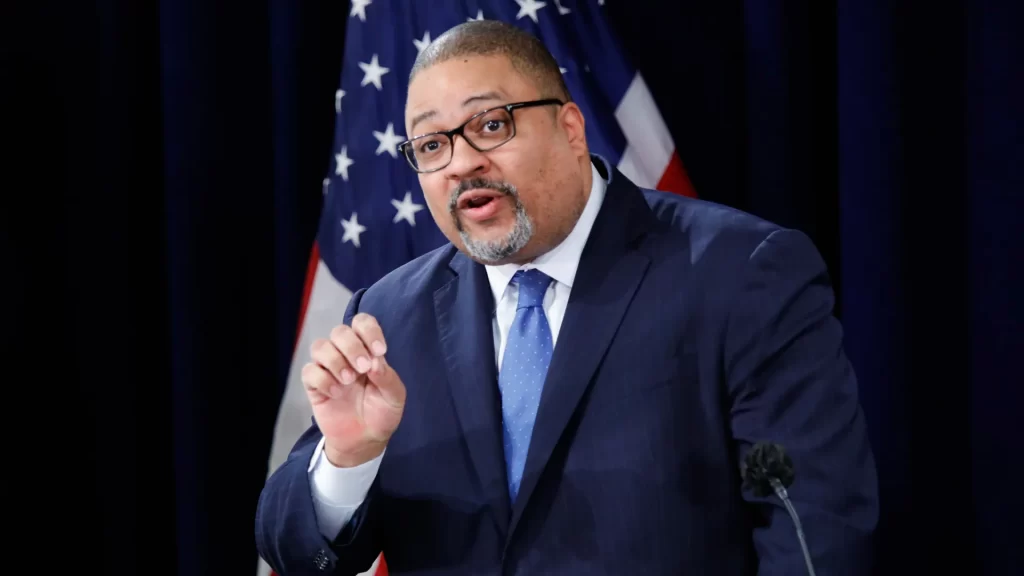As the trial concerning former President Donald Trump’s payment of hush money has paused for the weekend, some observers are questioning the strength of the prosecution’s case due to recent testimony and developments. Esteemed law professor Jonathan Turley commented on the situation, suggesting to Fox News that District Attorney Alvin Bragg’s efforts may be faltering.
The week wrapped up with testimonies from significant individuals, among them were David Pecker, a former tabloid publisher, Rhona Graff, a longtime assistant to Trump, and Gary Farro, a former banker associated with Trump’s former lawyer Michael Cohen. At the heart of the trial lies a $130,000 payment made to adult film actress Stormy Daniels, purportedly aimed at hushing up her alleged affair with Trump during the 2016 presidential campaign.
Farro delved into the specifics of the banking mechanisms employed to execute the payment, as jurors received brief testimony from Graff. She affirmed her role in maintaining communications at the Trump Organization for both Daniels and another individual implicated in comparable allegations, Karen McDougal. Yet, it was Turley’s remarks that garnered considerable attention.
During a recent interview, he pointed out weaknesses in the prosecution’s strategy. “I have to say this is collapsing on its own weight,” Turley stated emphatically. “I mean, you just have to stand back and let it fall.”
Turley criticized the prosecution for not addressing what he deemed essential questions. “Just asking simple questions that the jury would want to know has left serious damage for the prosecution,” he noted. “These are the questions that you would have expected the prosecution to ask as just the completion of their line of questioning,” Turley added, suggesting that these omissions could significantly impact the trial’s outcome.
In an earlier Fox interview, Turley said: “The more cases against Trump, the less justice we receive as a people. You know, the opponents of Trump would have been far better off with just one case, the Mar-a-Lago case. That’s based on real law, real precedent, and one can disagree with the interpretations. But it’s not a reach in the sense of this case.
“This case is, creating something, it’s creating a criminal code just for Trump. You know, you have a misdemeanor whose time has expired, the statute limitations ran out, and it was revived in this rather curious way. He’s effectively arguing that Trump was filing false business records through his counsel to hide a federal crime. But it isn’t a federal crime, this wasn’t a campaign contribution,” he added about the ‘hush money’ trial.
“None of that appears to matter, and that’s why a lot of us are looking at this and recoiling. This is not how the law is supposed to be,” he said.



